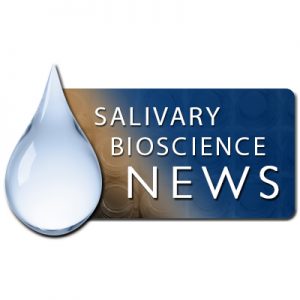Inconsistencies limit randomized controlled trials measuring salivary diurnal cortisol
Use of Salivary Diurnal Cortisol as an Outcome Measure in Randomised Controlled Trials: a Systematic Review. Author: Ryan, et al (2015), Annals of Behavioral Medicine BACKGROUND: Dysregulation of the hypothalamic-pituitary-adrenal (HPA) axis is associated with diverse adverse health outcomes, making it an important therapeutic target. Measurement of the diurnal rhythm of cortisol secretion provides a […]
Salivary cortisol and the effects of child care on development in high & low risk contexts
Child Care and Cortisol Across Infancy and Toddlerhood: Poverty, Peers, and Developmental Timing Author: Berry, et al (2016), Family Relations Evidence suggests that relations between child care and children’s development—behaviorally and physiologically—likely differ between children from high- versus low-risk contexts. Using 1,155 participant data from the Family Life Project, the authors tested (a) whether within- […]
Review: How negative parent-child relationships affect the biological stress system
Family relations, stress, and vulnerability: Biobehavioral implications for prevention and practice Author: Ha, et al (2016), Family Relations Developmental psychobiology research supports the hypothesis that individual differences in biological stress systems that are sensitive to environmental experiences are associated with individual adjustment problems. Negative social experiences, especially in family contexts, contribute to the dysregulation of […]
Early adversity contributes to lower latent trait salivary cortisol (LTC) levels in adolescence
Individual differences in early adolescents’ latent trait cortisol (LTC): Relation to early adversity Author: Stroud CB, et al (2016), Developmental Psychobiology Substantial evidence suggests that youth who experience early adversity exhibit alterations in hypothalamic pituitary adrenal (HPA) axis functioning, thereby increasing risk for negative health outcomes. However, few studies have explored whether early adversity alters […]
In utero infant’s stress response system impacted by mother’s psychological & physiological state
Developmental origins of infant stress reactivity profiles: A multi-system approach. Author: Rash JA, et al (2016), Developmental Psychobiology This study tested the hypothesis that maternal physiological and psychological variables during pregnancy discriminate between theoretically informed infant stress reactivity profiles. The sample size included 254 women and their infants. Maternal mood, salivary cortisol, respiratory sinus arrhythmia […]
Sympathetic and hypothalamic-pituitary-adrenal asymmetry in generalized anxiety disorder
Developmental origins of infant stress reactivity profiles: A multi-system approach. Author: Reeves JW, et al (2016), Psychophysiology Physiologic investigations of generalized anxiety disorder (GAD) have skewed toward assessment of the autonomic nervous system, largely neglecting hypothalamic-pituitary-adrenal (HPA) axis variables. Although these systems coordinate, suggesting a degree of symmetry, to promote adaptive functioning, most studies opt […]
Maternal distress alters salivary cortisol, affecting the neuroendocrine-immune network in children
Maternal distress and child neuroendocrine and immune regulation. Author: Riis JL, et al (2015), Social science & medicine. This paper examined the extent to which maternal psychological well-being moderates neuroendocrine-immune relations in children. From 2011 to 2013, 125 mothers and their five-year old children were studied in Baltimore, Maryland. Significant cytokine × maternal distress interactions […]
 Contact: Salimetrics (USA)
Contact: Salimetrics (USA)
